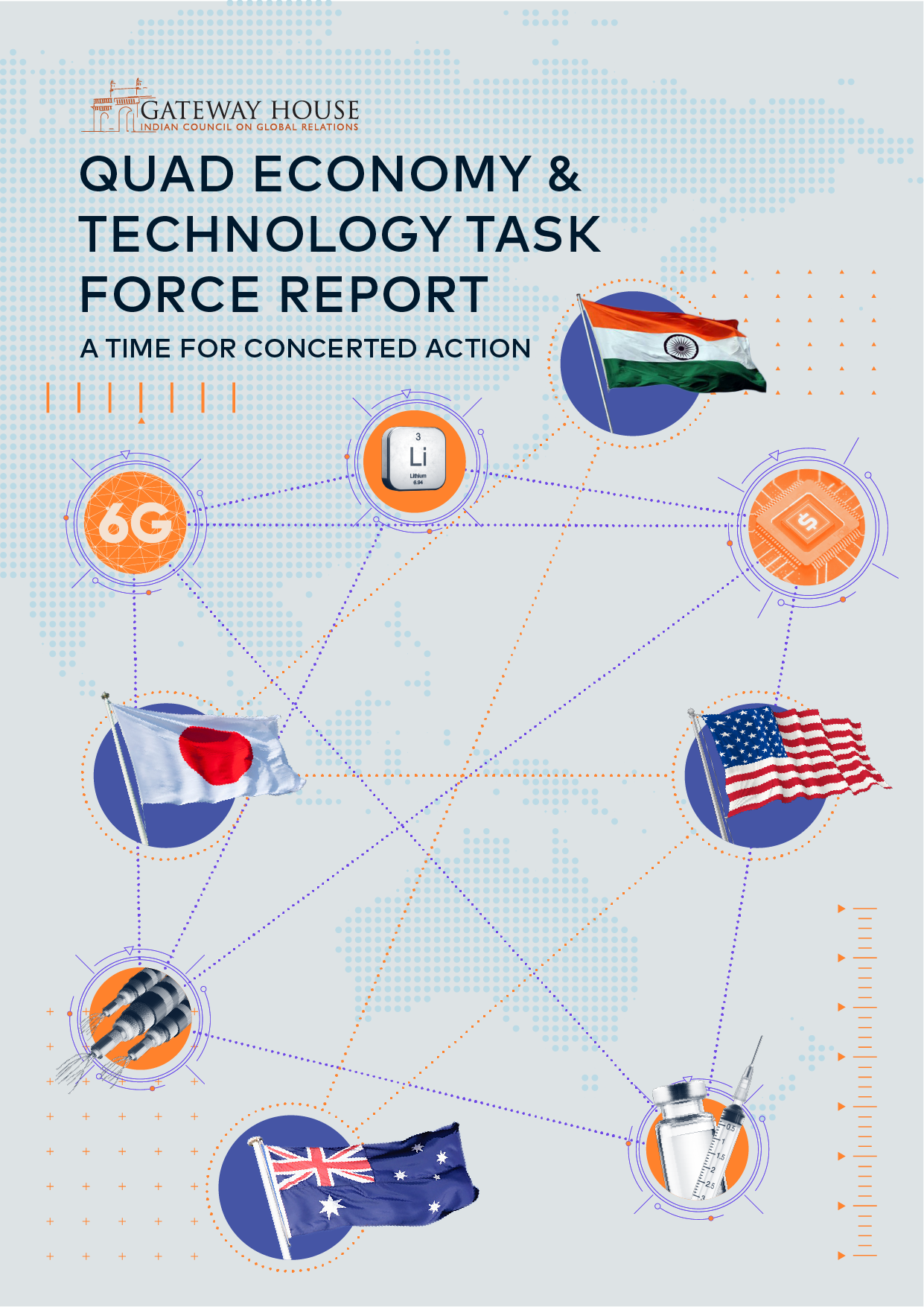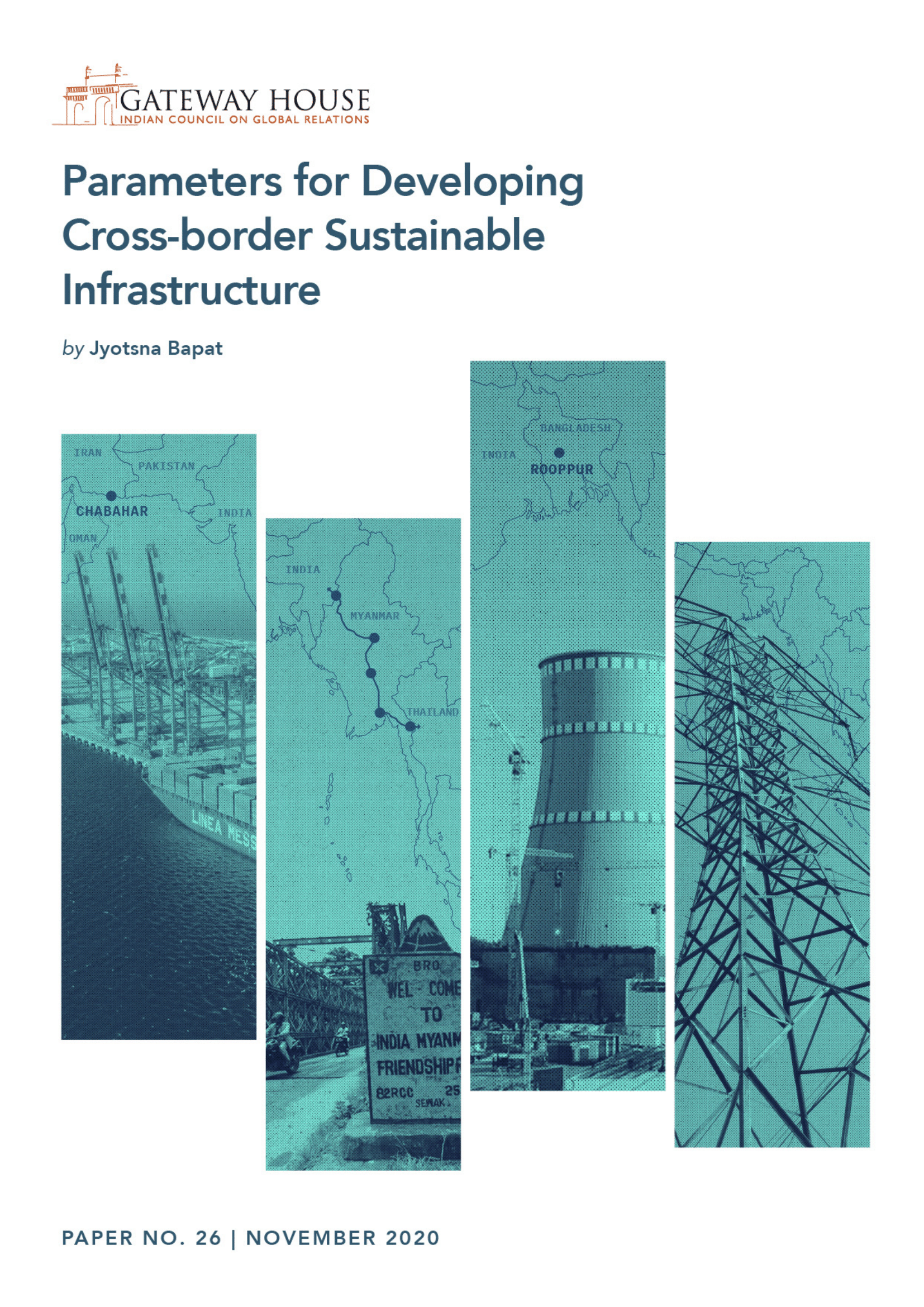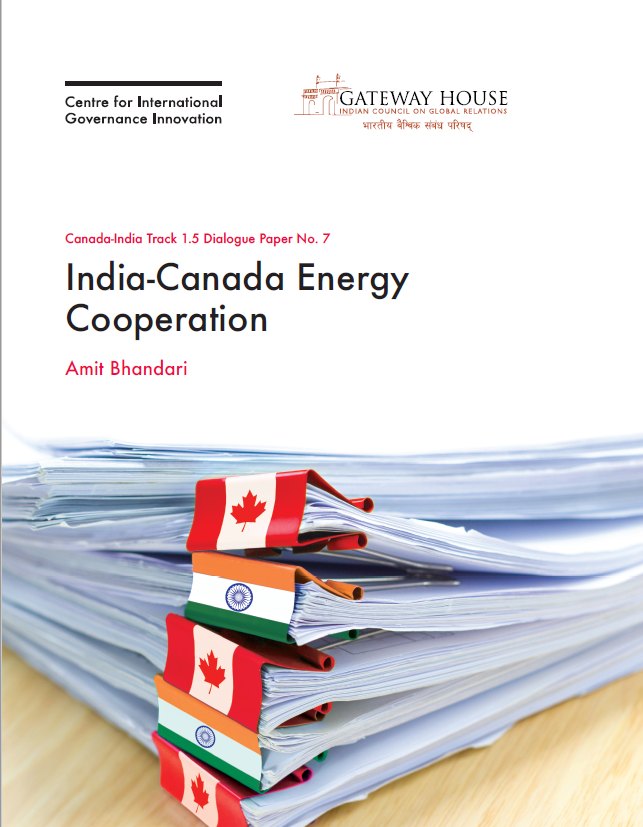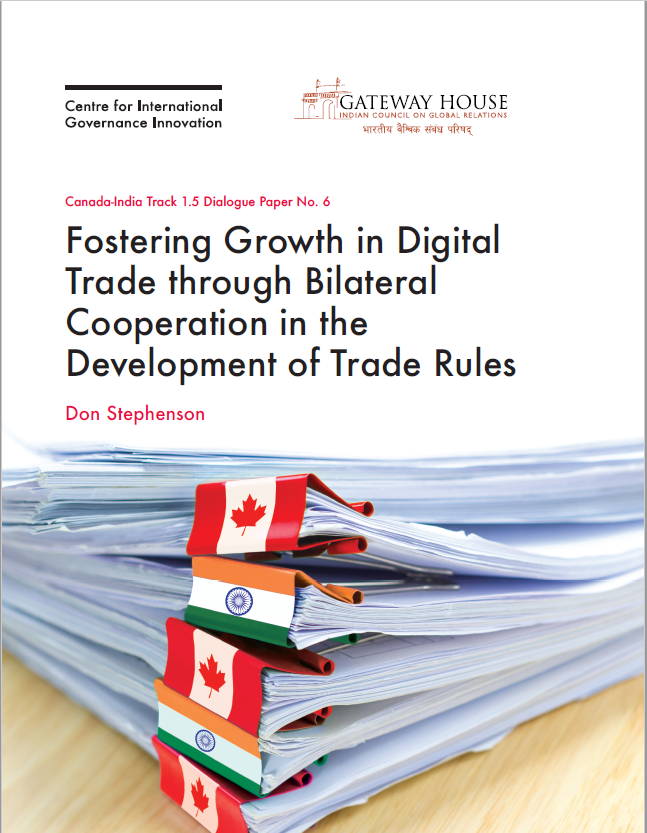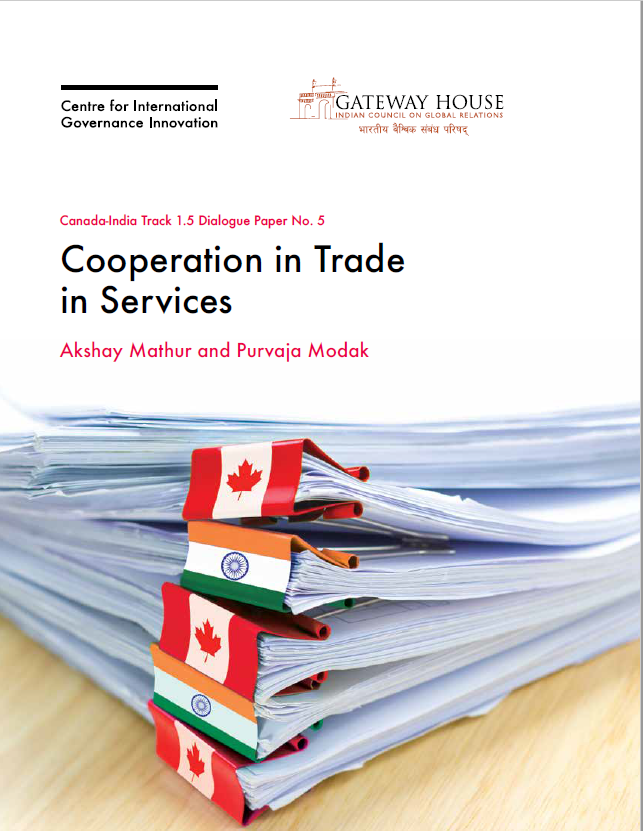Quad Economy and Technology Task Force Report
Conceived in 2020, the task force studied promising areas for cooperation between the Quad countries beyond their pre-existing maritime security partnership. The report highlights the need to increase economic and technological interdependence among the Quad countries and to establish common and updated rules and standards for emerging technologies in five study areas. The unique mix of the group – three developed and one developing nation, three Pacific and one Indian Ocean nation, three producer-trading nations with one massive emerging market – lends itself to innovation, experimentation and cooperation that can be a template for a new, post-pandemic geopolitical era.

